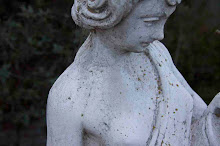
To send it back? Or not to send it back? These are the two questions that have plagued archaeologists, historians, antiquary collectors and diplomats alike since the Rosetta Stone was first transported out of Egypt to its current home at the British National Museum.
On 8 June 1810, Tamkyns Hilgrove Turner negotiated the transfer of the Rosetta Stone from Napoleon’s forces in Egypt into the hands of the British. In justification of his actions he wrote that the Stone had not been “plundered from defenseless inhabitants, but honourably acquired by the fortune of war.” He also expressed his wish to see it deposited “in the British Museum, where I trust it will long remain...a proud trophy of the arms of Britain”, an almost prophecy like statement that has, until now, come true.
In 2003, The Supreme Council of Antiquities in Cairo demanded the Stone’s return to its home country. The Director, Zahi Hawass, is alleged to have threatened the British Museum with force if they do not comply to his wishes. He says “if the British want to be remembered, if they want to restore their reputation, they should volunteer to return the Rosetta Stone because it is the icon of our Egyptian identity".
The problem is that the British also believe the Stone to be an icon of their identity. This 2,000 year old artifact is the Museum’s most important exhibit drawing the majority of the 5.5 million museum visitors annually. Since 1999 the Stone has been the feature piece in the Museum’s exhibit Cracking Codes and is the subject of much of the shop’s memorabilia with no less than 24 individual collectors items ranging from mugs to shirts to pencil cases. (Photo from the British National Museum collection of memorabilia for sale online.)

Today’s British Museum defenders have followed in Turner’s footsteps with two of their own arguments outlining the reasons for the Stone’s continued presence in England. The first argument questions the world wide impact the Stone’s return will have. When one artifact is returned how many others must follow before every country is satisfied? Along this line of thought, the Rosetta Stone is not the first artifact to come under negotiation. The 2,500 year old sculptures which once adorned the Parthenon in Athens, now homed in the British Museum, were retained in England on similar charges. Neil MacGregor, Museum employee, replied to Greece’s requests saying that the artifacts will never be returned, "not even on loan". Presumably, in order to stop the avalanche before it even starts to snow.
The second argument made by British Museum supporters in answer to the Rosetta Stone is more along the lines of sharing Egyptian history with the rest of the world. The Guardian newspaper poll run in 2009 concluded that 55.8% of readers thought that the Stone was part of the “global cultural heritage” and that “the country of origin doesn’t matter”. However, this argument is always followed up with the question of shared rights. Maybe a compromise could be reached with the Rosetta Stone spending its time between the two major Museums, increasing the number of people given the opportunity to view this important antiquary many fold.
It seems unlikely however, after the reaction of Neil MacGregor in response to the Greek sculptures, that these issues will be put to rest any time soon; especially being a topic in which the whole world has an interest. Maybe the best solution would be to create a UN of Antiquities?
For more opinions on the true owners of the rosetta Stone see http://heritage-key.com/blogs/malcolmj/ancient-world-london-bloggers-challenge-3-should-british-museum-return-rosetta-stone-





I definitely can see you point. I think that a world wide solution is the best way to go although I can't see it happening in my lifetime.
ReplyDelete